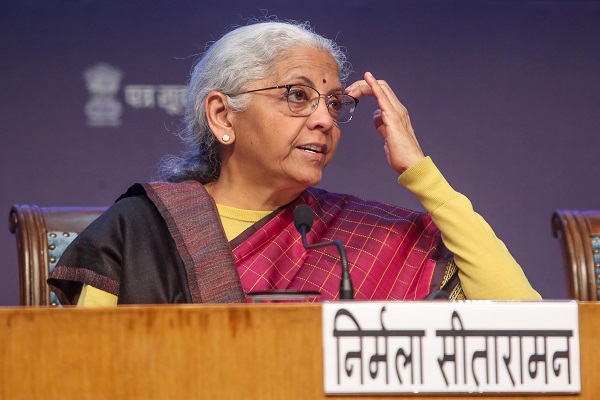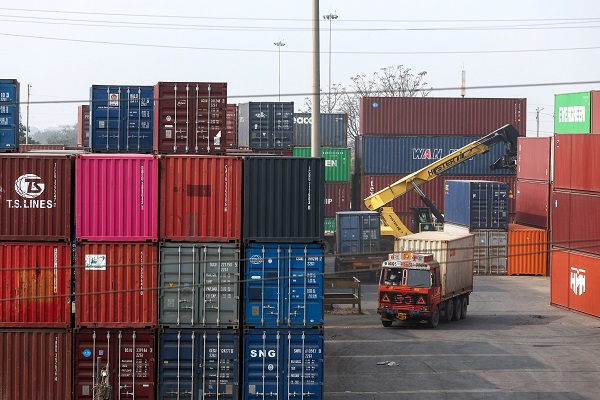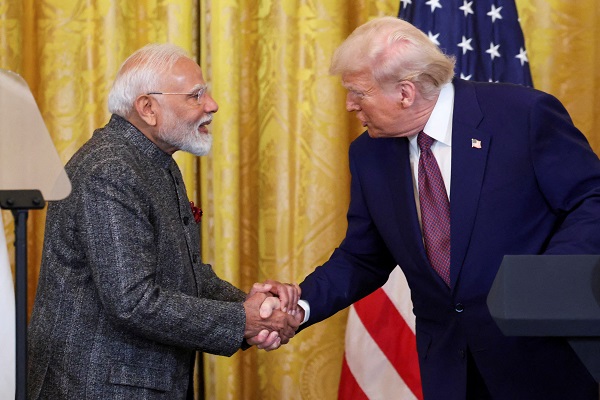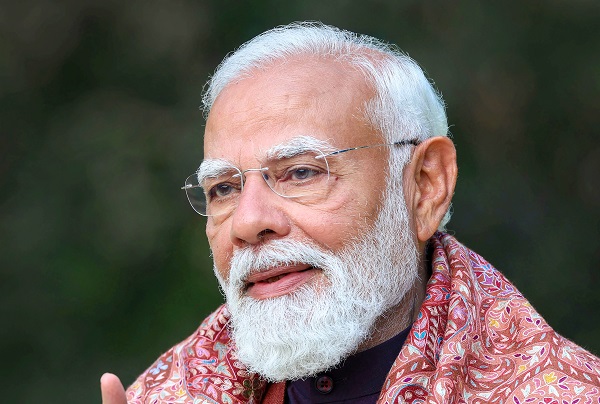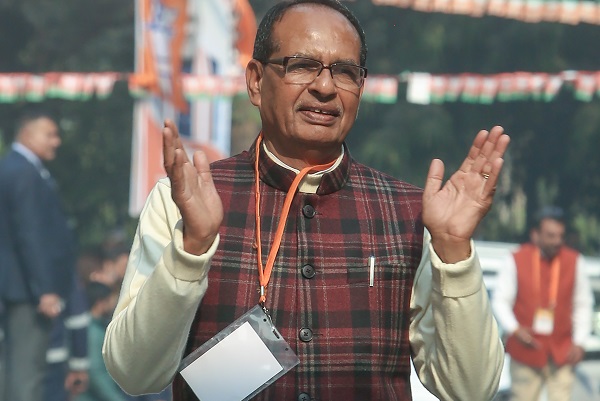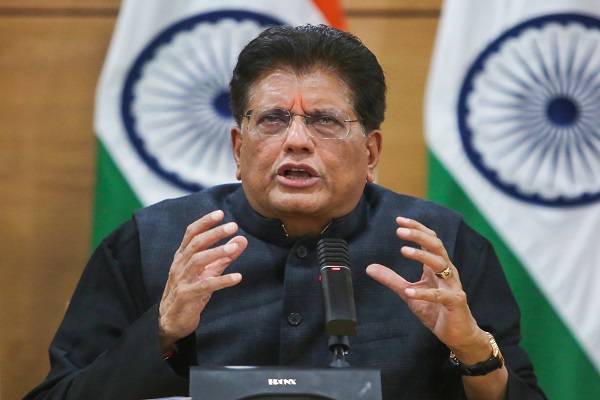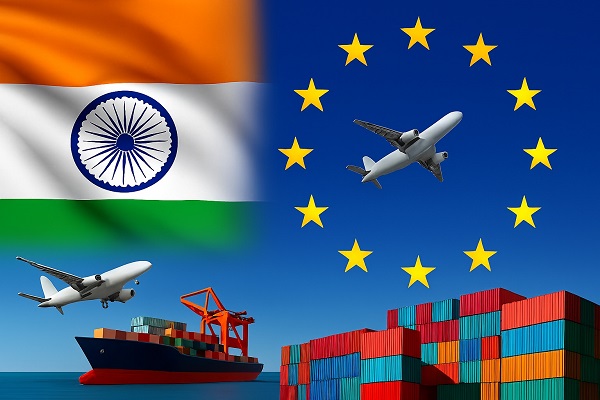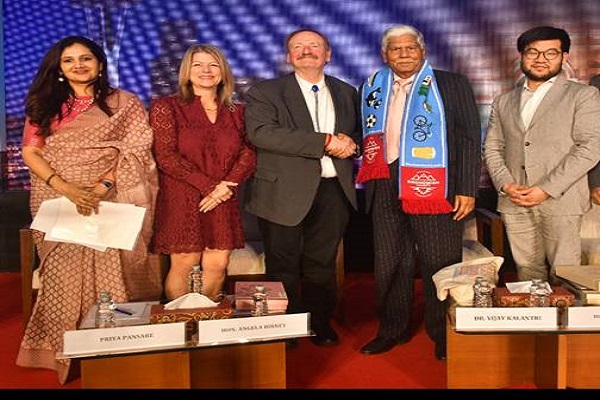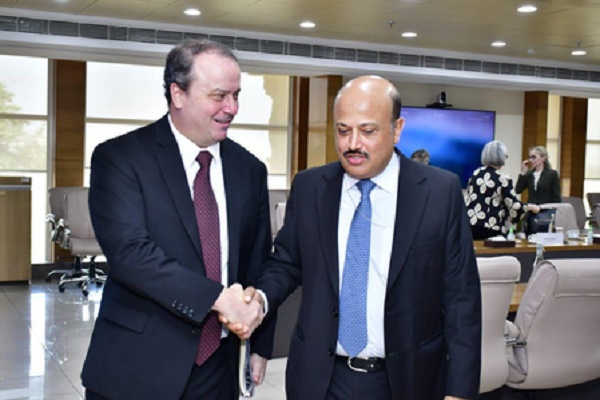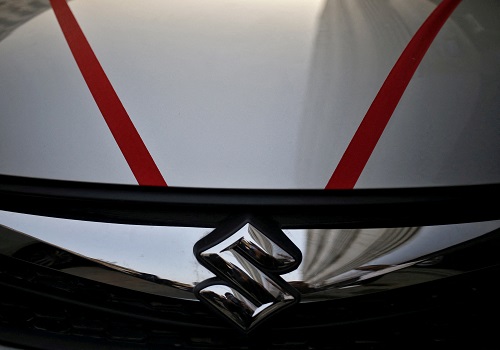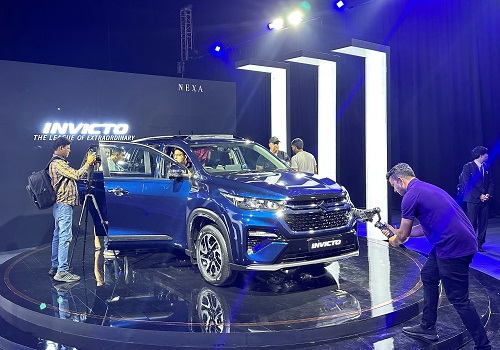Buy Maruti Suzuki Ltd : Strategy for net zero emissions needs to be India focused - Motilal Oswal
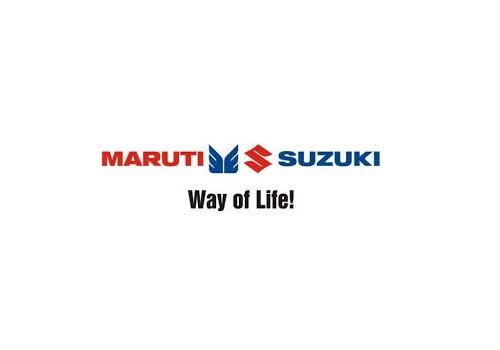
Buy Maruti Suzuki Ltd For Target Rs.8,200
Strategy for net zero emissions needs to be India focused
CAFÉ-2 compliance strategy in place | Car subscription service for easy access MSIL’s FY21 annual report highlights the initiatives (digitization, online financing, subscription service, etc.) it took to emerge stronger from the COVID-19 pandemic. The management has shared its thought process on the path to attaining net zero emissions. It lays down the strategy to meet CAFÉ-2 norms from Apr’22. Key highlights from the annual report:
* Net zero emissions – many paths to green mobility: MSIL believes that its strategy of moving towards net zero emissions has to be consistent with the economic and infrastructure conditions prevailing in India. Per capita income at 5% of a large part of the developed market reduces the ability of a large number of people to buy expensive electric Cars. Some customers can only afford small Cars as only 5% of the Cars sold in India are priced over INR1.5m. It is focused on CNG and Hybrids to reduce emissions. These two technologies, coupled with biofuels, offer a means of moving towards its goal of net zero emissions. It also sees hydrogen as an interesting alternative to reduce dependence on importing Lithium.
* CNG/Hybrid to help in complying with CAFÉ-2 norms: Phase II of Corporate Average Fuel Efficiency (CAFE) norms to reduce the carbon footprint of the Automobile industry is applicable from Apr’22. In Phase I (Apr’17 onwards), MSIL had the least CO2 emissions per vehicle in the industry. CAFÉ-2 norms will need MSIL to reduce its fleet emission to 113gm of CO2/km at 1,145kg of fleet weight (from 130g CO2/km in Phase I). For further reduction in CO2 emissions, it is adopting a mix of powertrain technologies based on electrification and CNG. Suzuki’s JV with Toshiba and Denso for a Li-ion battery will support MSIL’s Hybrid plans.
* Subscription model to offer flexible car ownership: In FY21, MSIL launched its car subscription model ‘Maruti Suzuki Subscribe’, which offers easy and flexible car ownership to customers. This all-inclusive subscription service enables customers to enjoy the experience of owning a brand new car without purchasing it. It offers flexible ownership tenure options (from one to four years) by paying a monthly fee, which is inclusive of the vehicle cost, road tax, registration charges, insurance, maintenance, roadside assistance, and accessories.
At the end of the ownership period, customers have the option to purchase the same vehicle at the market price or renew their subscription. This service is offered in nine cluster cities, in partnership with three leading shared mobility service providers, and covers 10 models. It plans to expand this offering to more than 40 cities over the next three years.
* Digitizing sales and financing function: In sync with the changing preferences of customers, catalyzed by the COVID-19 outbreak, MSIL has digitalized over 90% of its sales touch points, introduced augmented reality for visualizing vehicles on its website, and is automated the test drive experience. In FY21, over 100k users availed the AR experience, and the share of digital inquires rose to 30% of total inquiries from 13%/4% in FY20/FY19. It also became the first OEM to offer an online end-to-end real-time car finance service facility, with 13 financiers across 30 cities offering this service.
* The network expansion pace slows down due to the COVID-19 outbreak, but service network expansion remains strong: MSIL added ~34 sales outlets across formats, taking its total sales outlets to 3,120 in 1,992 cities. This has been the slowest addition since GFC due to the impact of the COVID-19 outbreak. It continued to rapidly expand its service network. Service outlet additions stood at 180, taking the total count to 4,044 outlets in 2,014 cities. Its True Value (used car) network shrunk by 77 outlets to 1,143 outlets in 868 cities (from 926 cities in FY20).
* Penetration of CNG and mild Hybrid increasing: CNG vehicles contributed 12% of domestic volumes (v/s 7.3% in FY20) for MSIL as sales of CNG vehicles grew 50% YoY (v/s an 8% decline in domestic volumes). Similarly, sales of mild Hybrid vehicles (offered in six vehicles) grew 18% YoY in FY21.
* About 12% increase in total headcount due to COVID-19: MSIL saw a 12% increase in total headcount to 37.2k personnel (including 21.1k non-regular personnel) in FY21, with almost the entire addition happening in non-regular employees. This increase was primarily to manage discontinuities created by the COVID-19 pandemic.
Highlights from the financial statements
* MSIL saw savings of INR1.4b in FY21 from localization (v/s INR572m in FY20) and VAVE of INR2.5b (v/s INR2.8b in FY20). Total savings stood at 0.6% of total sales (0.4% in FY20). Despite these savings, RM cost (as a percentage of sales) increased by 190bp due to commodity cost inflation.
* For the first time in a decade (since royalty was increased in FY11), it was lower than 5% (at 4.6%, down 40bp YoY), benefitting from a favorable product mix.
* Variable cost (excluding royalty), as a percentage of sales, improved by ~30bp as savings from lower marketing cost (-40bp) and power consumption (-25bp) were diluted by higher transportation cost (+40bp).
* Unlike many other OEMs, the total fixed cost for MSIL increased by ~50bp to 4.8%, impacted by a similar increase in rent expense. The latter largely pertains to depreciation of the Gujarat plant, which had risen in FY21 on account of commissioning of plant B and the powertrain plant in Jan’19.
* Core working capital days reduced to -49 days (from -23 days in FY20), driven by normalization in payable days.
* Despite a weak operating performance, CFO improved to INR88.4b in FY21 (v/s INR34b in FY20), driven by working capital normalization (inflow of INR43.3b v/s an outflow of INR25.7b in FY20). Coupled with lower capex (at INR23.2b v/s FY20 at INR34b), FCF improved substantially to INR65b (v/s INR61m in FY20).
* Net cash stood at INR431b (v/s INR357b in FY20), which is ~82.5% of capital employed (v/s ~73% in FY20).
* Considering a weak operating performance in a COVID-affected FY21, RoE declined to 8.2% (-350bp YoY). This is lowest RoE in the listed history of MSIL.
Valuation and view
* While the underlying demand is strong, the near term outlook is uncertain, hit by semiconductor shortages as well as the residual impact of commodity cost inflation reflecting in 2QFY22.
* After a gap of two years, we expect new product launches to resume, with a mix of complete product upgrades (five within 2-3 years) and new model launches (three within two years). This should drive volume, market share, and a margin recovery. Profitability is near the trough, and margin improvement is expected from the lows of 1HFY22.
* We see scope for further improvement in dividend payouts and a resultant rerating. The stock trades at 36.4x/22.5x FY22E/FY23E consolidated EPS. We value the company at 27x Mar’23E consolidated EPS. We maintain our Buy rating, with a TP of INR8,200/share.
To Read Complete Report & Disclaimer Click Here
For More Motilal Oswal Securities Ltd Disclaimer http://www.motilaloswal.com/MOSLdisclaimer/disclaimer.html SEBI Registration number is INH000000412
Above views are of the author and not of the website kindly read disclaimer
